Top 10 Dog Breeds That Bark the Most, Veterinarians Say

When choosing a dog, you’ll likely consider factors like energy levels, exercise needs, temperament—and how much noise a breed tends to make. While some dogs are naturally more vocal than others because they were bred to be protectors, herders, or hunters, others just simply love to yap.
“Every dog is hard-wired to bark, so choosing a dog breed solely with the expectation that it will not bark much is not the right thing to do,” explains Alexandra Bassett, CPDT-KA, lead trainer and behavior specialist at Dog Savvy Los Angeles. “But, no pet parent needs to live with chronic barking if they understand how to respond to the different types of barking a dog does.”
For instance, some breeds are more prone to excessive barking due to alarm, demand (they want that treat!), or boredom, which is especially common in high-energy herding and sporting dogs.
Of course, training— along with some other helpful strategies—play a crucial role in managing your pup’s vocal habits. Read on to discover the dog breeds that bark the most, according to veterinarians, and what to do if your furry friend is regularly waking the neighbors.
RELATED: Top 5 Laziest Dog Breeds, According to a Dog Trainer
1
Miniature Schnauzers
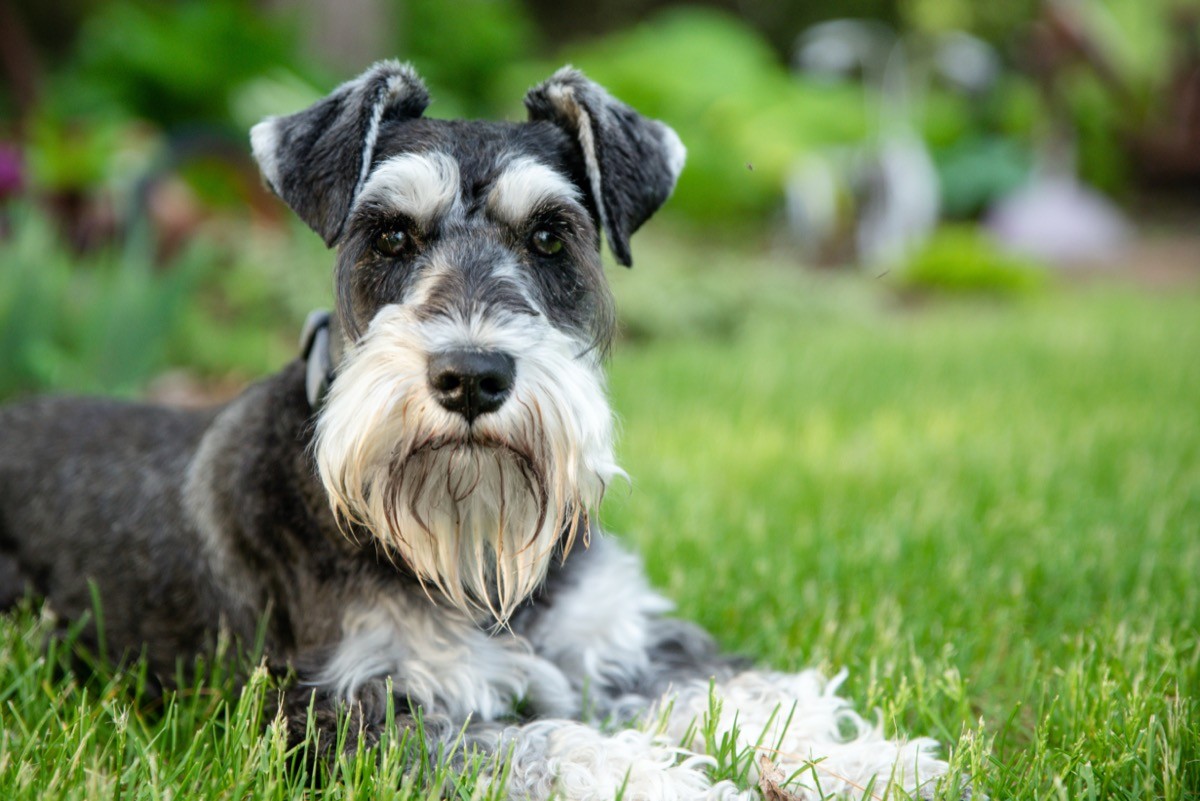
Due to their slightly smaller size, Miniature Schnauzers are a popular pick for pet parents. However, experts say the breed can become noisy if not properly cared for.
“Schnauzers are highly intelligent dogs that make wonderful family pets if all of their basic needs are met, but can become chronic barkers if they don’t get enough exercise and enrichment,” says Bassett. “Since they were bred to be guard dogs, it’s important to calm them down when they alarm bark. Otherwise, they may bark at every unfamiliar noise they hear or person they meet.”
RELATED: 10 Dog Breeds That Barely Bark, Veterinarians Say
2
Siberian Huskies
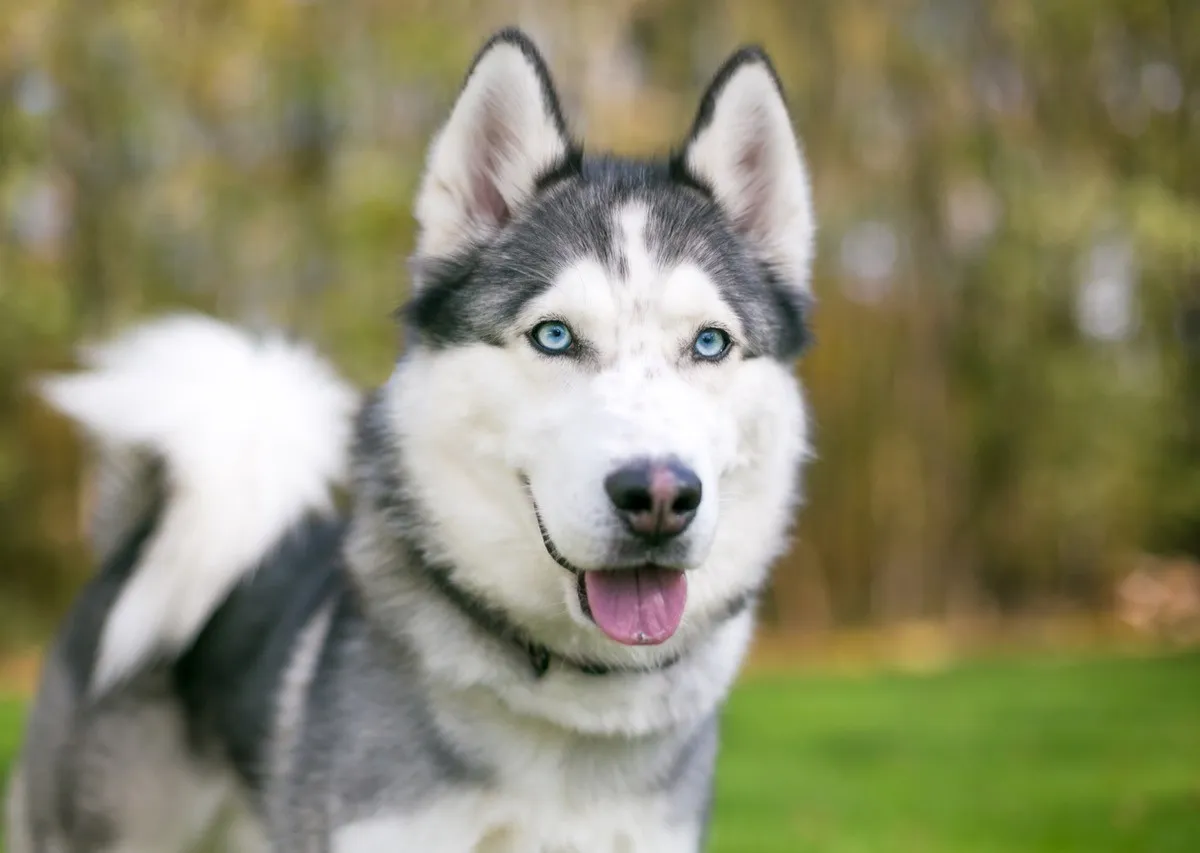
Known for their tolerance of extreme cold temperatures thanks to their long history as sled dogs, Siberian Huskies are a beautiful breed with striking eyes and features. However, they are howlers.
“Siberian Huskies are a highly energetic and talkative breed that tends to howl rather than bark,” explains Bethany Hsia, DVM, a licensed veterinarian and co-founder of CodaPet. This is partly due to the breed’s pack-oriented nature and is often more harmonious-sounding rather than jarring.
3
Samoyeds
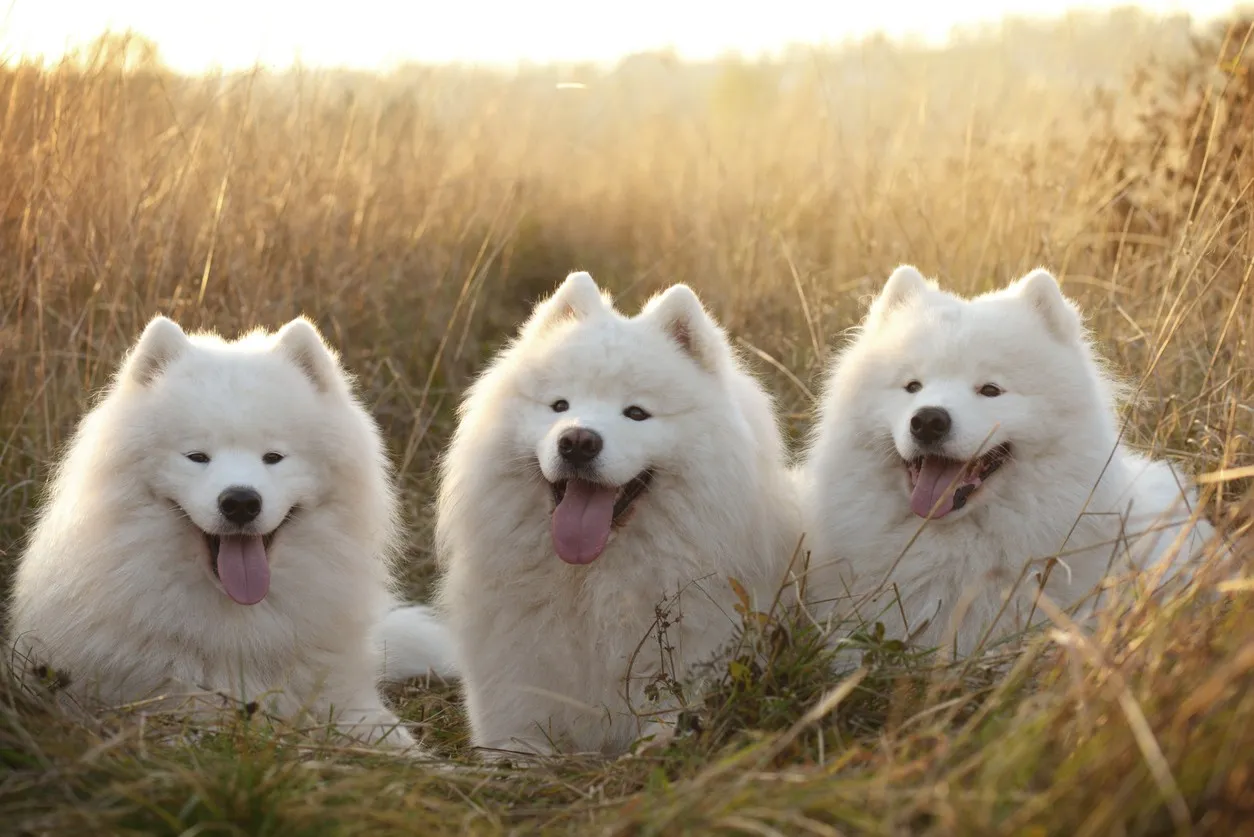
“This breed is closely related to the wolf, and they will howl at almost any sound,” says Sally Grottini, a dog behavior expert at JustAnswer. “Like wolves, they want to get their group together at any sign of danger.”
These deeply rooted animal instincts make Samoyeds more prone to barking than other breeds. But, their love of fun can also be to blame.
“They’re a verbal breed and will bark or whine with excitement,” adds Grottini.
4
Beagles

The Beagle is a small-to-medium-sized hound known for its keen sense of smell and unmistakable sound.
“While their barks are not particularly loud, Beagles are pretty vocal and tend to bay, especially when they pick up an interesting scent,” says Aaron Rice, an expert dog trainer and co-owner of Stayyy. “Their hunting instincts make them prone to barking, so early training is essential to manage their vocal tendencies.”
RELATED: 10 Best Ways to Pet-Proof Your Home
5
Great Pyrenees
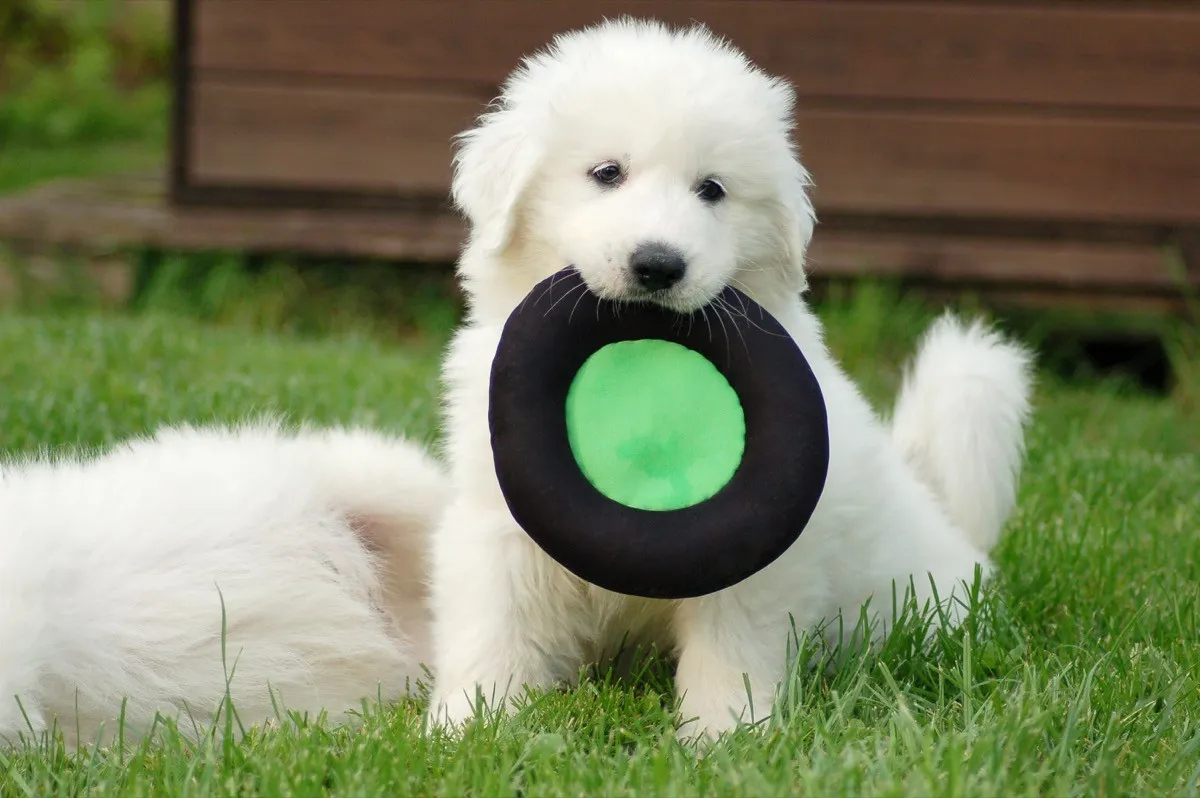
As a larger working breed, Great Pyrenees stand out because of their adorably fluffy coat and determined personalities. But, their built-in temperament requires special training to curb their tendency to bark.
“These dogs were bred to keep predators away from farm animals, especially when the owners are not nearby,” says Grottini. “They often watch a herd of livestock during the night hours to keep livestock safe from predators like wolves and coyotes. Their barking will continue until the predator moves away or is taken care of by the owner.”
According to Bassett, guarding breeds that are not properly socialized from a young age can easily become overwhelmed by new and unfamiliar stimuli and may bark a lot as a result.
RELATED: 10 Best Dog Breeds to Own If You’re Over 55, Veterinarian Says
6
Australian Shepherd
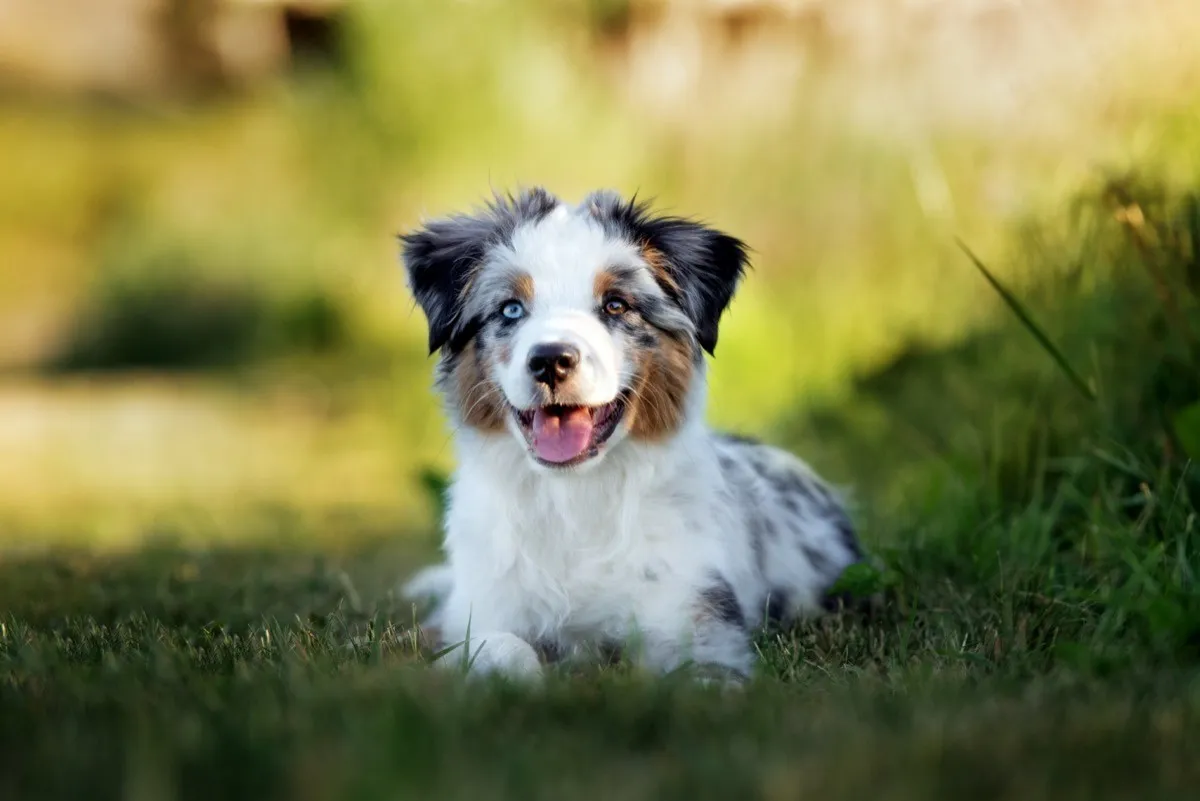
Known for their intelligence and friendly disposition, Australian Shepherds are a popular family pet pick. However, their breed’s history also means they can be vocal.
“Aussies are herding dogs at heart and use their bark to control and direct livestock,” says Sara Ochoa, a veterinarian in Louisiana. “This instinctual behavior means they’re also likely to use their voice to try to ‘herd’ humans or other pets at home.”
7
Chihuahuas

For many pet owners, Chihuahuas are a perfect pocket-sized choice for companionship. But, according to Rice, they pack a surprisingly big bark.
“Despite their tiny size, Chihuahuas have a big personality and tend to bark as though they are much bigger than they are,” he says. “These pint-sized pups are often quite vocal, using their barks to communicate their feelings and needs.”
He warns that they may become habitual barkers without proper training. “Early socialization is important to avoid this,” Rice suggests.
8
German Shepherds

German Shepherds are often seen as the epitome of poise, security, and even temperament. But though they are renowned for their loyalty, intelligence, and protective nature, they can also be prone to making more noise than other breeds.
“While their barks serve as a warning to potential intruders, they can also bark out of boredom or anxiety if not provided with sufficient physical and mental stimulation,” says Rice. “Fortunately, with consistent training and exercise, their barking can be managed effectively.”
RELATED: The 10 Most High-Maintenance Dog Breeds
9
Pomeranians
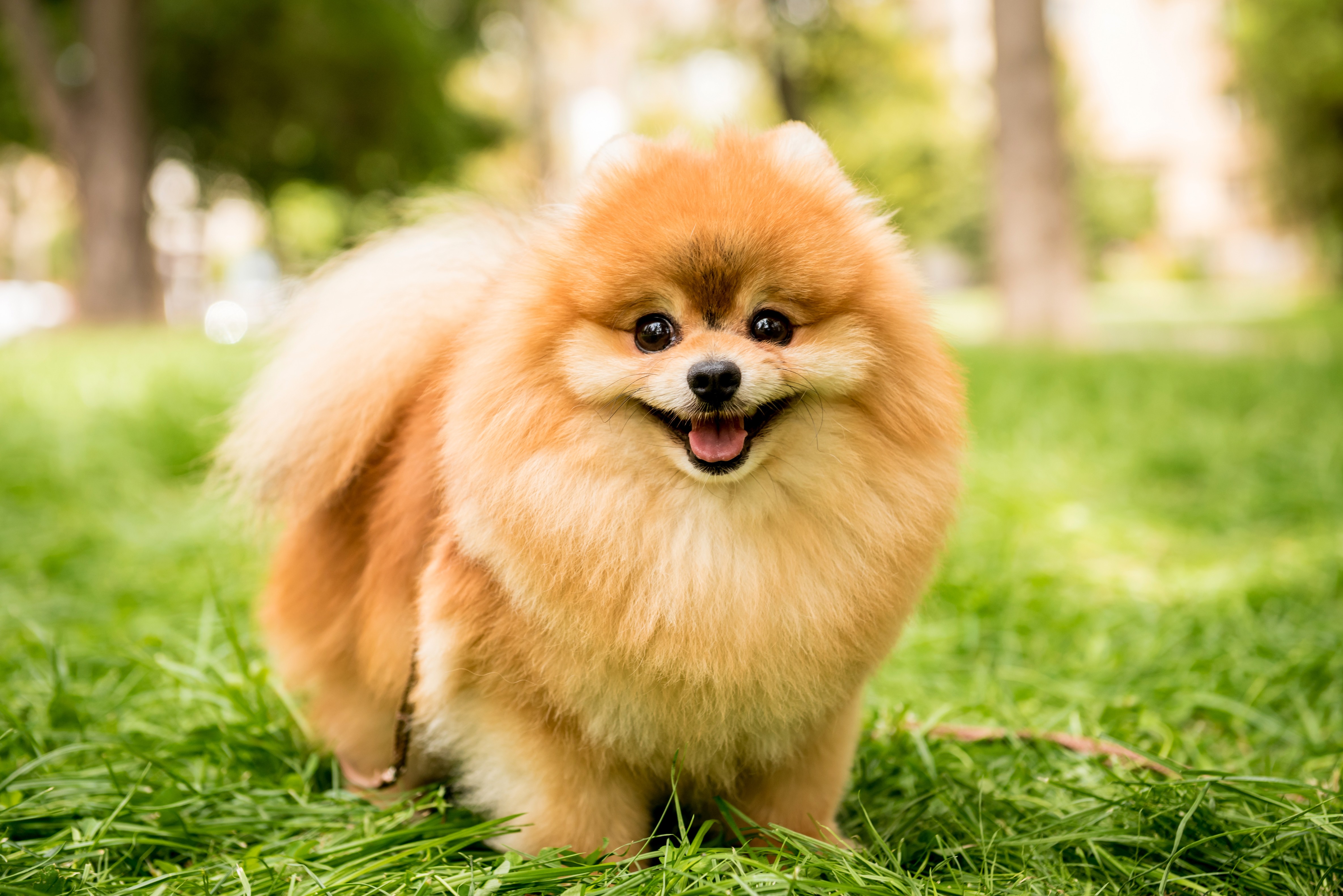
Many prospective pet owners are endeared to Pomeranians thanks to their permanent smile and puffy, fluffy coat. However, similar to Chihuahuas, they tend to punch above their weight when it comes to attitude.
“Although their compact size may lead adopters to think they will make a good lap dog, they are a high-energy toy breed that needs lots of exercise, training, and enrichment to be a happy house pet,” says Bassett. “Adopting a Pomeranian is more like having a large, active breed, guard dog in a small dog body than getting a comfort-seeking lap dog.”
“They are somewhat defensive of their territory and may bark when they hear any outside noises, so making an effort to calm them down and reassure them when they are alarm barking is necessary if pet parents don’t want them to become nuisance barkers,” Bassett suggests.
10
Yorkshire Terriers

Rounding out the loud and proud small barkers is the Yorkshire Terrier.
“They are bold and aggressive, with a tendency to bark at unfamiliar sounds or perceived threats,” says Rice.
“Early socialization and positive reinforcement training can help curb their barking tendencies and channel their energy into more constructive behaviors.”
How Can You Encourage Your Dog to Stop Barking?
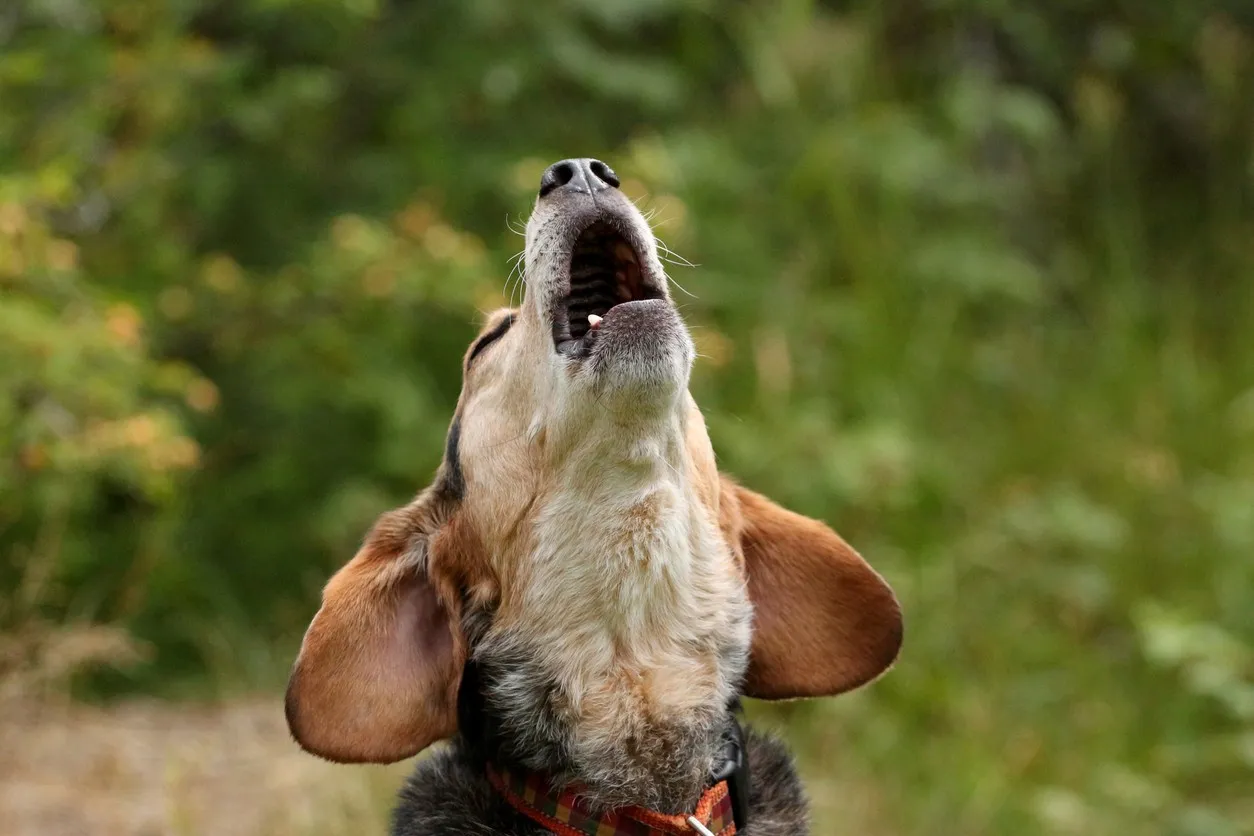
Whether they’re howling at the moon or trying to scare off a delivery driver, dogs that bark a lot can become a pain in the ear—and your neighborhood—really quickly. So how do you get your dog to stop barking?
All of the veterinarians and experts we interviewed stressed the importance of teaching good habits early on, and then making sure to reinforce those regularly and often.
Basset sums the steps up well. First, if your dog is still a puppy, you should start behavioral training ASAP. A local professional can help you learn more about your specific breed, its barking tendencies, and how to train them to bark less.
Regardless of your dog’s age, Basset says adequate exercise, training, enrichment, and socialization can help prevent issues that can lead to excessive barking.